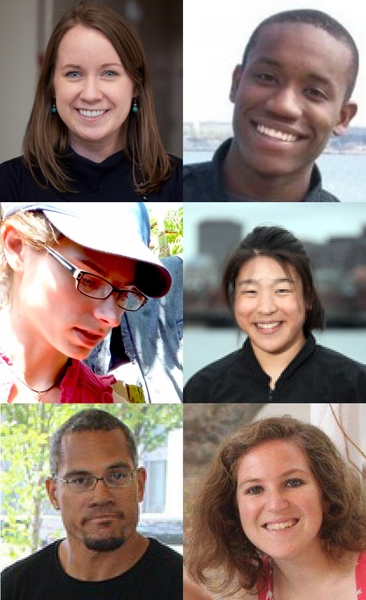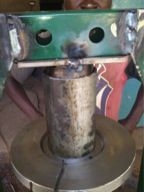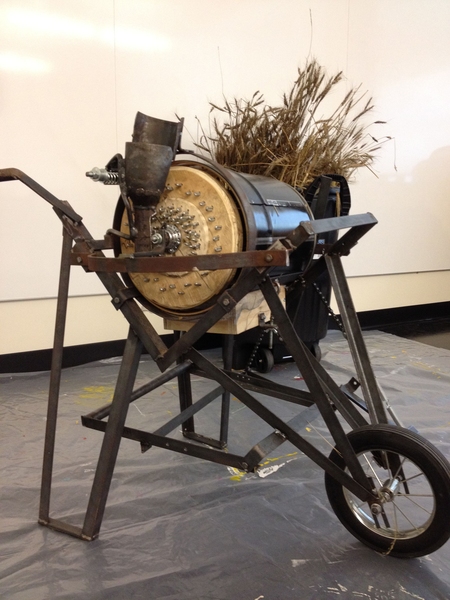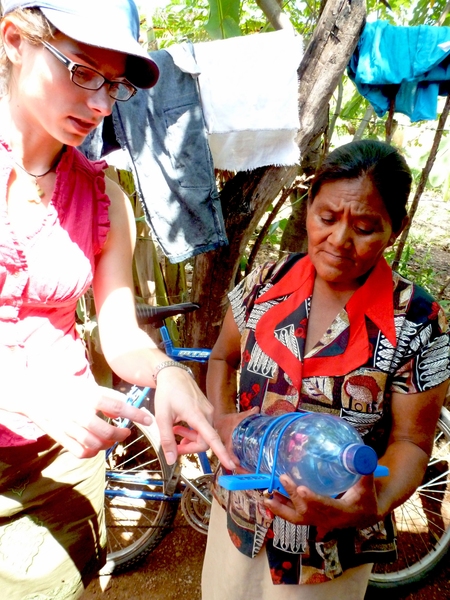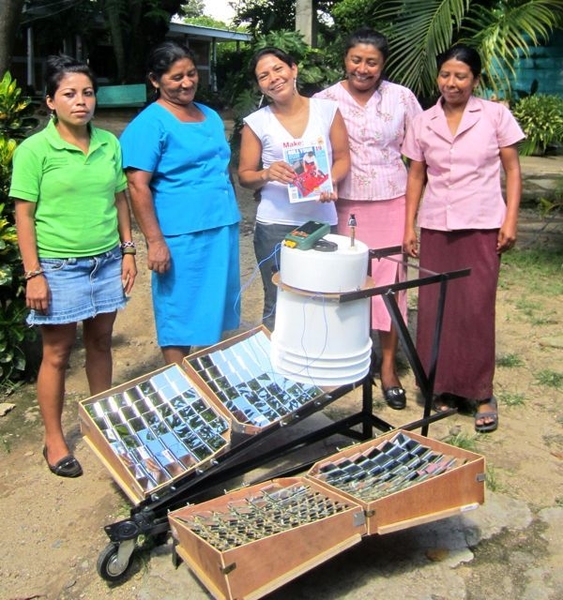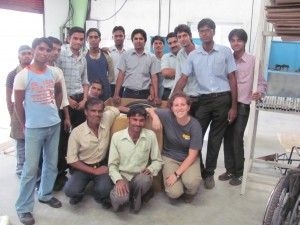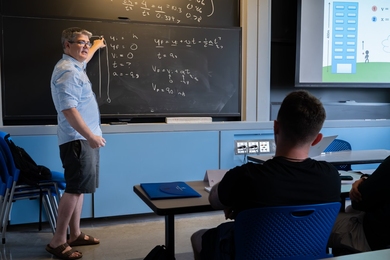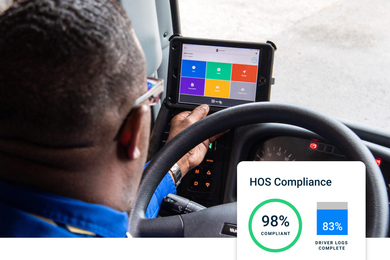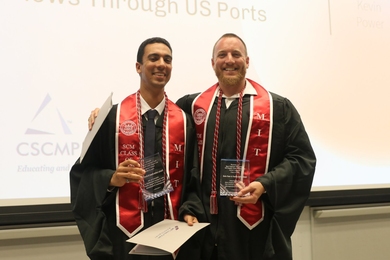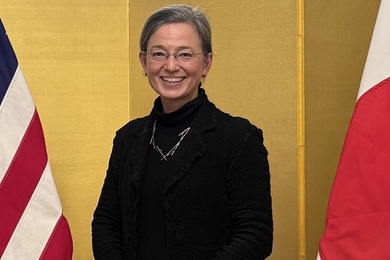"MIT produces some of the most talented innovators and entrepreneurs in the world — and more and more of them are interested in social impact," observes Saida Benhayoune, director of D-Lab's Scale-Ups. Launched by D-Lab in 2011, the Scale-Ups program provides an acceleration platform for MIT alumni innovators and entrepreneurs seeking to turn appropriate technologies into scalable and sustainable social ventures. Scale-Ups fellowships provide seed funding as well as mentoring, skills building resources and partnership cultivation opportunities to recent MIT graduates.
For technology dissemination to be successful at scale in the developing world, the constraints and context of the market must be thoroughly integrated in the design of the product and enterprise from the very earliest stages. As a result, D-Lab Scale-Ups has created a pipeline structure with projects in each of three stages of development from prototype through manufacture and wide-scale distribution. Currently supported projects include an early stage Moringa oil press prototype in development with partners in Ghana, a multicrop thresher intended for smallholder farmers in Ethiopia, a solar autoclave being piloted in Nicaragua, a monitor for a simple water disinfection method and the Leveraged Freedom Chair, an innovative mobility device currently being manufactured in India.
Now, through Oct. 5, Scale-Ups is accepting applications for Phase II fellowships. Phase II ("Design for Dissemination"), projects should have a prototype for which the technology concept is relatively proven and applicants should have already gained a base understanding of the need addressed a chosen pilot market. Over the course of the one-year period of support, fellows will have the opportunity to take their product from working prototype to marketable product through product testing, market research and enterprise development. Selected fellows will receive $20,000 toward stipend, travel for market research and testing, materials and services.
But Scale-Ups Fellowships are more than a monetary award; the program is designed as a learning community of social entrepreneurs, inventors, and venture start-ups. It provides online and in-person forums for fellows to share their experiences and accumulated wisdom, while also connecting them to leaders in industry, international development and business. In addition, Scale-Ups supports the projects through skill building (workshops in needs analysis, market research, design for scale, monitoring and evaluating, business strategy and communications), partnership cultivation (introductions to community partners, industry partners, distributors, potential funders), and matching fellows to technical and business mentors.
Jacqueline Linnes, a current Phase II Scale-Ups fellow, and her team from PotaVida are developing a monitor for the SODIS (solar) water disinfection method, and describes the value of the Scale-Ups fellowship to her work this way: "The Scale-Ups program has been invaluable ... It has supported us at a critical time to help get the monitor from the initial design phase through three iterations of functioning prototypes. The Scale-Ups program has provided us with an extensive network of experts in water, sanitation and international development who have given us feedback on both product design and market research because of our association with the MIT D-lab."
To be eligible for the Phase II fellowship, an applicant must have graduated from MIT within the last three years (graduating students may apply but must have graduated by the fellowship start date) and apply as an individual (not as a team or organization). The object of the project must be the development and commercialization of a hardware product intended to create social value through poverty reduction at a significant scale.
The full Scale-Ups proposal deadline schedule for 2012-2013 is as follows:
For technology dissemination to be successful at scale in the developing world, the constraints and context of the market must be thoroughly integrated in the design of the product and enterprise from the very earliest stages. As a result, D-Lab Scale-Ups has created a pipeline structure with projects in each of three stages of development from prototype through manufacture and wide-scale distribution. Currently supported projects include an early stage Moringa oil press prototype in development with partners in Ghana, a multicrop thresher intended for smallholder farmers in Ethiopia, a solar autoclave being piloted in Nicaragua, a monitor for a simple water disinfection method and the Leveraged Freedom Chair, an innovative mobility device currently being manufactured in India.
Now, through Oct. 5, Scale-Ups is accepting applications for Phase II fellowships. Phase II ("Design for Dissemination"), projects should have a prototype for which the technology concept is relatively proven and applicants should have already gained a base understanding of the need addressed a chosen pilot market. Over the course of the one-year period of support, fellows will have the opportunity to take their product from working prototype to marketable product through product testing, market research and enterprise development. Selected fellows will receive $20,000 toward stipend, travel for market research and testing, materials and services.
But Scale-Ups Fellowships are more than a monetary award; the program is designed as a learning community of social entrepreneurs, inventors, and venture start-ups. It provides online and in-person forums for fellows to share their experiences and accumulated wisdom, while also connecting them to leaders in industry, international development and business. In addition, Scale-Ups supports the projects through skill building (workshops in needs analysis, market research, design for scale, monitoring and evaluating, business strategy and communications), partnership cultivation (introductions to community partners, industry partners, distributors, potential funders), and matching fellows to technical and business mentors.
Jacqueline Linnes, a current Phase II Scale-Ups fellow, and her team from PotaVida are developing a monitor for the SODIS (solar) water disinfection method, and describes the value of the Scale-Ups fellowship to her work this way: "The Scale-Ups program has been invaluable ... It has supported us at a critical time to help get the monitor from the initial design phase through three iterations of functioning prototypes. The Scale-Ups program has provided us with an extensive network of experts in water, sanitation and international development who have given us feedback on both product design and market research because of our association with the MIT D-lab."
To be eligible for the Phase II fellowship, an applicant must have graduated from MIT within the last three years (graduating students may apply but must have graduated by the fellowship start date) and apply as an individual (not as a team or organization). The object of the project must be the development and commercialization of a hardware product intended to create social value through poverty reduction at a significant scale.
The full Scale-Ups proposal deadline schedule for 2012-2013 is as follows:
- Phase I: March 27, 2013, for projects running June 1 to Sept. 30, 2013
- Phase II: Oct. 5, 2012 for projects running Dec. 1, 2012 to Nov. 30, 2013
- Phase III: Feb. 8, 2013, for projects running June 1, 2013 to May 31, 2015
